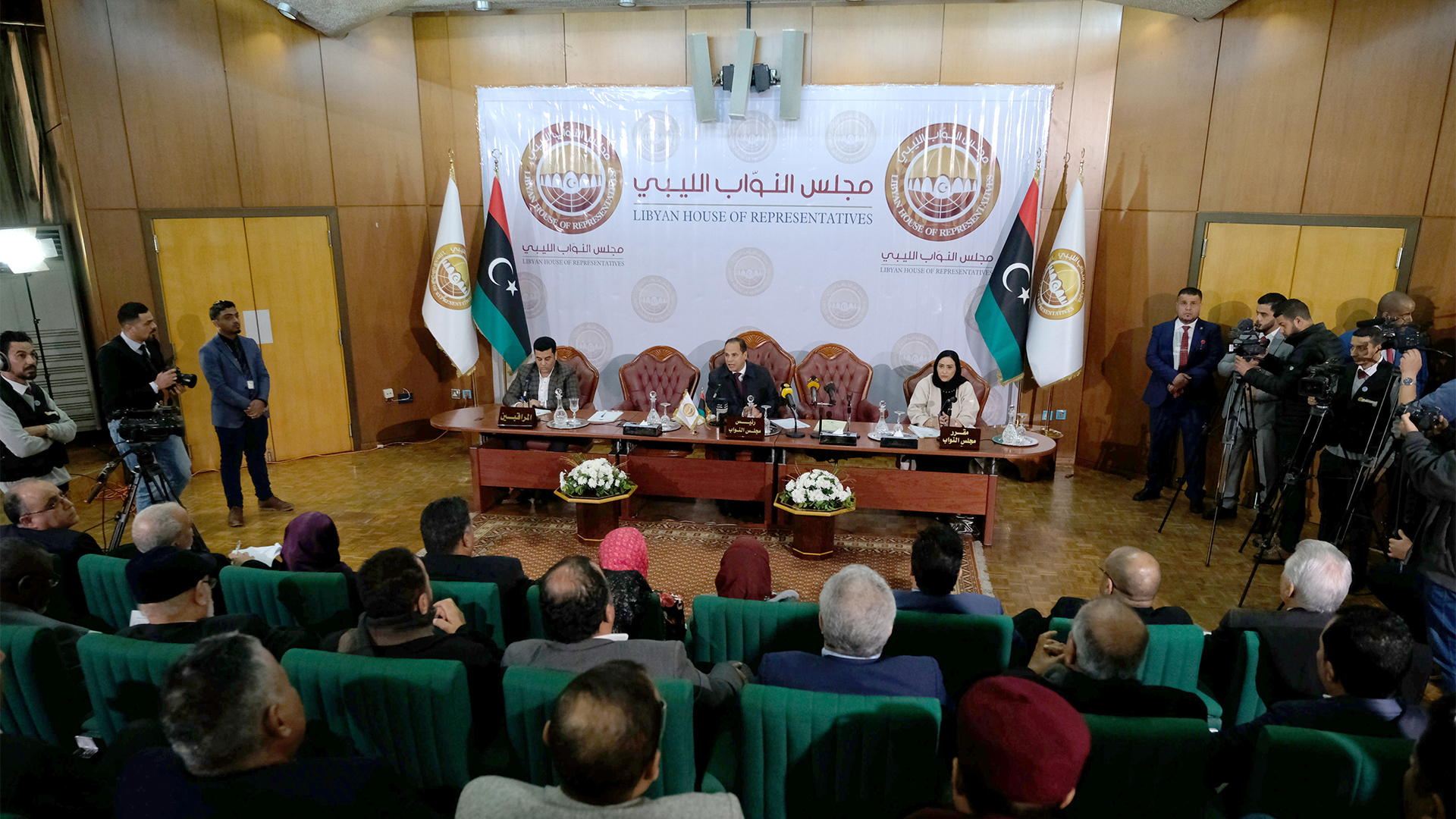The guests of the "Beyond the News" program did not show much optimism about the initiative put forward by the United Nations envoy to Libya, Abdullah Batili, to resolve the political crisis in this country, despite their acknowledgment that international and American pressures - in particular - can push the parties to the crisis at home and abroad to resolve their positions.
Yesterday, Monday, Batelli launched an initiative to hold presidential and legislative elections in Libya during the current year, and he said - in a briefing to the UN Security Council - "Based on Article 64 of the Libyan Political Agreement of 2015, and based on the agreements reached by the Libyan parties in the past, I decided to launch an initiative aimed at To enable the holding of presidential and legislative elections during the year 2023.
He made it clear that he intended to establish a high-level steering committee in Libya to advance consensus on related matters, such as securing elections, and adopting a code of honor for all candidates.
Commenting on the UN initiative, researcher and political analyst Mohamed Mahfouz indicated that the two main partners in the political process (the House of Representatives and the Supreme Council of State) have proven their failure and cannot be relied upon, and what is likely to be successful is that the committee that will be formed by the UN envoy will include those who have an interest in the elections. Such as tribal leaders, political parties and political elites, stressing that the issue of success, however, remains linked to international support and US pressure on the parties obstructing the political process.
In turn, the journalist and political analyst Ahmed Mohamed saw that the UN initiative is no different from its predecessors, which did not reach a real result due to the lack of clear mechanisms for resolving the Libyan crisis, declaring his refusal to impose solutions from outside.
In his speech to the episode (28/2/2023) of the “Beyond the News” program, the Libyan guest indicated that the recent consensuses between the House of Representatives and the Supreme Council of State regarding approving the 13th constitutional amendment can be built upon, stressing that the Libyan attempts to find a solution can be built upon. To write her success.
He pointed out that a rapprochement had occurred between the Libyan parties, and the former UN mission headed by Stephanie Williams came and intervened to impose solutions, but it did not end the division or the Libyan crisis.
The importance of American pressure
As for the director of the Libyan Center for Research and Development, Al-Senussi in Sikri, he stressed the importance of American pressure on all parties to resolve the Libyan crisis, saying that Washington has been moving effectively for months, and CIA Director William Burns visited Libya last January and met Prime Minister Abdul Hamid. Al-Dabaiba and retired Major General Khalifa Haftar, stressing that the two men interact with the American proposal.
While he talked about the Libyan challenges and problems on the ground politically, security and socially, Bsikri said that the initiative of the UN envoy will not fail completely, and the committee that he will form will agree on an alternative constitutional basis and on the framework of electoral laws, but how will all parties be convinced of what has been reached, ending his words that the solution to the crisis Libyan not soon.
In the first reactions to the briefing of the UN envoy to Libya, the Libyan parliament criticized the briefing given by the UN envoy to Libya, saying in a statement he issued, "We are surprised at the inaccuracies included in the briefing of the UN envoy regarding the failure of the House of Representatives and the State to approve the constitutional rule."
Libya is going through a political crisis, represented by the existence of two governments, the first is mandated by the House of Representatives headed by Fathi Bashagha, and the other is the national unity government headed by Abdul Hamid al-Dabaiba, who refuses to surrender except to a government that comes through a new elected parliament.
Libya was scheduled to witness presidential and legislative elections in December 2021, but they were postponed indefinitely due to disagreements over the constitutional basis for elections and the presence of controversial candidates.

